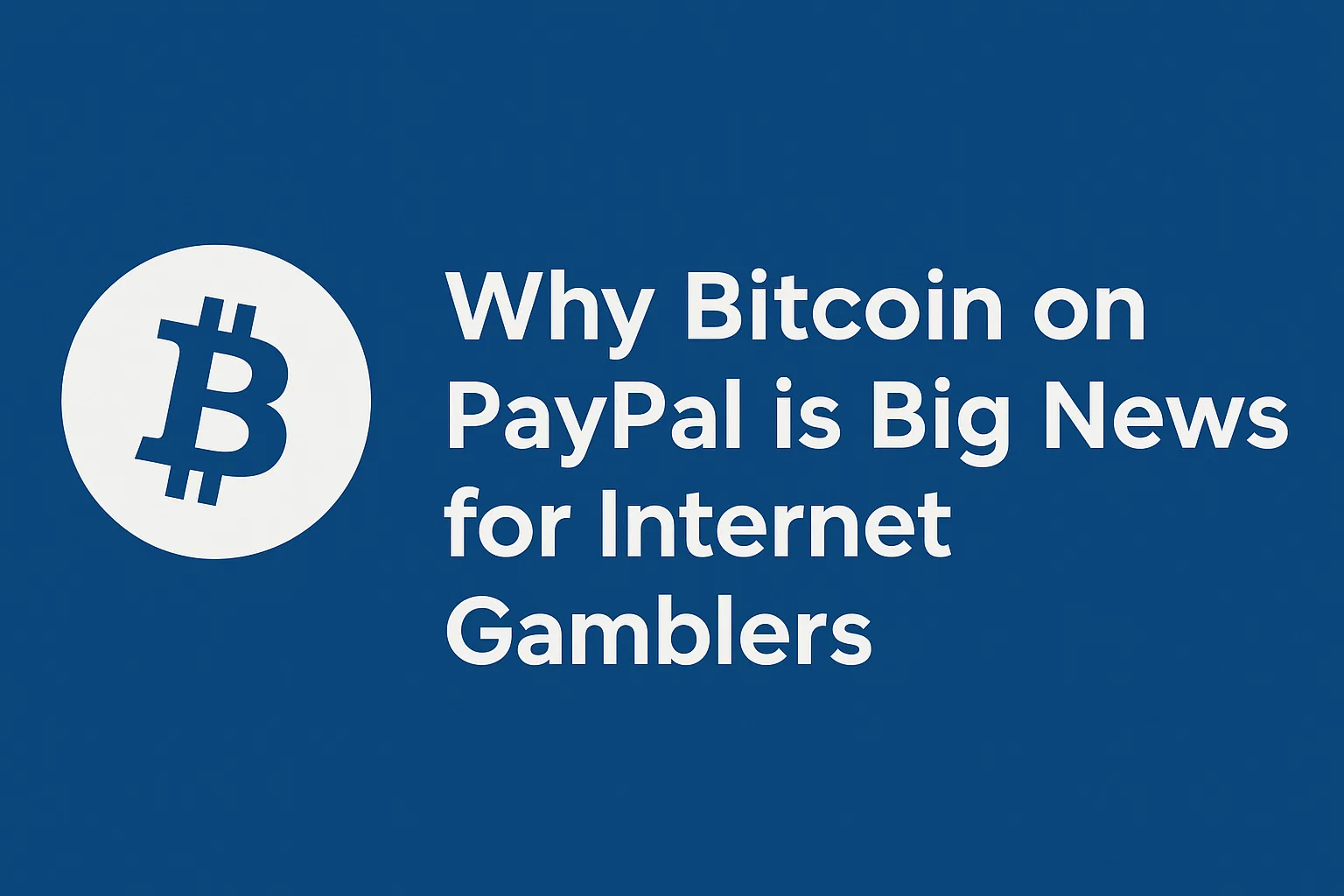
When it emerged in October that US PayPal customers would be able to buy, sell and spend Bitcoin and other cryptocurrencies on the platform, technology writer Romain Dillet nailed it pretty much. "Many companies have been trying to build the PayPal of crypto," he wrote on TechCrunch. "It turns out the PayPal of crypto might just be PayPal."
PayPal has over 360 million users globally, with around 26 million merchants allowing their customers to purchase goods and services through the payment platform. So it takes no e-commerce expert to realize what a milestone event this is for PayPal and for cryptocurrencies in general. As Matt Frankel of personal finance site The Motley Fool recently put it, "This is the first and this is the biggest by far legitimization of Bitcoin as a means of payment in its history. By far, not even close."
The ripple effect across the online gambling community will undoubtedly be huge, as PayPal is one of the most popular means for depositing and withdrawing money at casinos and sportsbooks. There are a number of reasons for this. For starters, it's accepted by the majority of gambling sites, such as https://norskcasino.pro/. It provides a faster way of withdrawing funds from your online bookie account, compared to bank transfers and debit cards. It also provides a simple and safe way for people to make transactions, as using an e-wallet avoids the need to input your sensitive bank details, significantly lowering any risk of exposure to the prying eyes of hackers and hoaxers.
Current limitations with Crypto
Conversely, Bitcoin and other cryptocurrencies have not been a very convenient banking method for gamblers. People who wish to deposit and withdraw directly from their cryptocurrency wallet have largely had to make do with crypto casinos that operate in a kind of shadowy, parallel universe to the big mainstream casinos and bookmaker websites. Licensing and regulating crypto casinos has been an ongoing problem. As gambling law expert Richard Williams recently told TechRadar, "Because of its historic association with money laundering and dirty money (e.g. the Silk Road) regulators are always going to be more suspicious of cryptocurrency as a payment method."
The nebulous, unregulated, fleeting nature of crypto casinos and sportsbooks surely accounts for their relative lack of popularity thus far compared to traditional sites. There has also been concern that the medium is vulnerable to bots that, to quote an academic paper, will "attempt to hit the jackpot of an app once it is statistically profitable to do so."
PayPal shake-up puts top online gambling websites back in play for Bitcoin and other cryptocurrency users. That's because customers don't directly deposit Bitcoin or other digital currencies. Instead, PayPal instantly trades the cryptocurrency in your account for the equivalent amount of traditional currency, which is then accepted by the gambling website. That is, this will not make any difference to all the many gambling sites working on PayPal – there's no disruption to them, and no more regulative processes have to be added on.
Is the hype justified?
- There has been lukewarm response to this milestone incident.
- Some take it as belated acknowledgment that cryptocurrencies are not a flash in the pan.
- deVere Group financial consultancy CEO Nigel Green has welcomed PayPal's decision.
Saying "The fact that one of the world's largest payment companies is allowing its customers to buy, sell and hold Bitcoin is just another example of how Bitcoin deniers and cryptocurrency cynics are on the wrong side of history."
Others have been less impressed, raising an eyebrow at the fact that PayPal doesn't allow users to transfer cryptocurrencies to other accounts. It's a closed loop, where you can buy and sell Bitcoin and other digital currencies only within PayPal. Blockchain.com CEO Peter Smith was succinct in his response, saying "PayPal's decision is highly centralised and inflexible."
Conclusion
Such criticisms are arguably unfair. Early days, after all, and it's more than likely that PayPal will take a more relaxed attitude once the use of cryptocurrencies is standard among the general public. In the meantime, it'll be fascinating to see how the innovation might change things in the world of online gambling.
On the face of it, it's reasonable to think PayPal's decision will set a buzz going among Bitcoin-savvy gamblers who've shunned crypto casinos, and who are possibly already rubbing their hands in anticipation of being able to use their virtual funds to fill up casino and sportsbook accounts. And so it may be that gamblers will never be interested in gambling using cryptocurrencies, due to the inherent volatility of the currencies themselves. As technology journalist Joel Khalili points out, "Day-to-day fluctuations in price mean an investment in crypto is a gamble in itself, no matter what the most effusive Bitcoin evangelists might say."
As bookmakers' popularity continues to surge, commentators, CEOs and punters themselves will be sure to monitor closely how the gradual normalisation of cryptocurrencies will impact one of the most lucrative industries in the world.